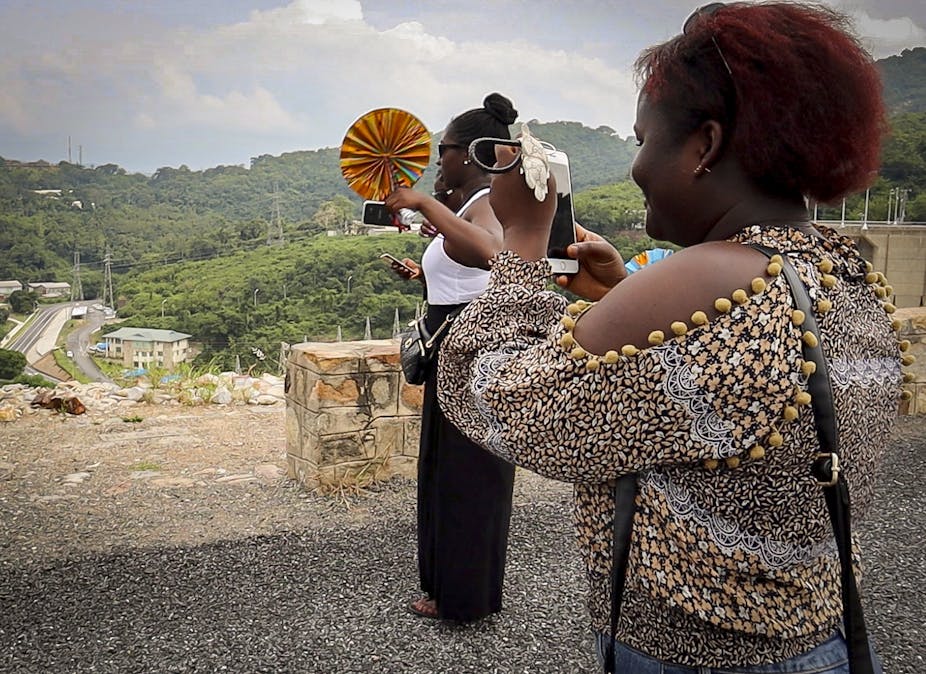Young migrants make up over 20% of the youth population across the European Union. In cities like Hamburg in Germany, half of all children and youth under the age of 18 have a migration background (50.4%), meaning they or their parents were born abroad.
This means millions of young people across Europe have connections to places other than the countries where they live. They stay in touch with friends and family abroad through the internet. They are fluent in the languages of their country of origin and the country where they reside. And they get involved in the politics of the ‘home’ country through diaspora organisations. In other words, migrant youth live transnationally – their lives are a constellation of people, places, and practices around the globe.
People’s lives and identities are not necessarily bound to one nation-state. Migrants can be both integrated and connected to ‘home’.
Researchers have studied migrants’ transnational lives for decades. But one thing they have overlooked is just how physically mobile migrant youth are.
Recent research shows that migrant youth travel to their countries of origin with surprising frequency. More than half of migrant youth in several European countries travel ‘home’ at least once a year.
Our research project is taking a closer look at this mobility and how it affects the lives of migrant youth. We focus on young people with a Ghanaian background in Germany, Belgium, the Netherlands and Ghana. The project includes ethnographic case studies in the four countries and a large-scale survey of high-school students in Europe.
The ethnographic case study in Germany included 20 young men and women (aged 15-25) who live in Hamburg. Some were born in Ghana, some in Germany, and all had been mobile between the two countries. The small sample size allowed us to follow young people’s lives for over a year. This way, we could explore their mobility and its effects in depth. This included accompanying them to Ghana to understand what happens on their visits and why this matters.
Diverse mobility
Our research is showing that young people’s movements – or what we call ‘mobility trajectories’ – are very diverse. While many young people stay in Ghana when their parents migrate, some migrate to Europe themselves. Others grow up in Europe with parents who migrated. And many young people living in Europe visit Ghana frequently, regardless of their own migration history.
For the young people in our Germany case study, travelling to Ghana represents different things.
What it means changes over time, as young people travel back and forth. It also changes depending on where they go, who they visit, and what happens during their travels.
Akosua (19) was born and raised in Hamburg and has visited Ghana five summers in a row. She used to find her time there boring because she didn’t have any local friends. But on a recent trip, Akosua attended make-up school in a busy, urban salon. There, she befriended local young women. Together, they learned new skills and compared life between Ghana and Germany. Through this experience, Akosua got to know Ghana as an independent young woman. Her trip opened up new perspectives on what opportunities Ghana could offer her in the future.
Trips to Ghana also help young people reflect on their own development. Ella was born in Hamburg but grew up mostly in Ghana until she was 16. At age 20, Ella returned to Ghana for the summer. Family and friends commented on how much she had changed since she moved to Germany.
People said I’ve grown, I’ve become more independent, more serious with life.
Ella’s trip represented an important transition in her life: she realised she was no longer a child, but a woman.
Mobility also allows young people to connect with their family and heritage in ways they cannot do remotely. Esra (19) was born and raised in Hamburg and made her first trip to Ghana aged 17. There, she met relatives she had only seen in photos and visited her parents’ hometown. After her trip, Esra told me: “Before I was like, ‘Whatever, I know my mum comes from Ghana’. But now I know where my mother was in Ghana, where my father was in Ghana. It’s more real than when you hear (about) it”.
‘Getting to know Ghana in another way’
The young people in our study had various experiences travelling to Ghana – they went to rural and urban places, visited relatives and friends, felt out of place and right at home. Some visited Ghana every year, others every few years, while a handful had been once or twice.
All these trips shaped young people’s relationships to Ghana. They changed the way young people felt about the country and how often they wanted to travel there. And they shaped what role young people envisaged Ghana playing in their lives.
Akosua wanted to return to Ghana to volunteer and “get to know Ghana in another way”. Ella aimed to have an international career between Ghana and Europe. And Esra couldn’t wait to return to Ghana to spend more time with her family. They all imagined themselves living transnational lives between two – or even more – countries.
Migrant youth don’t just maintain transnational connections and activities from a distance. Their trips ‘home’ help them create and update their relationship with the countries their families come from. The people, places, and events they encounter on their travels give them inspiration, connection and opportunity – and teach us something about what it means to be mobile global citizens.

